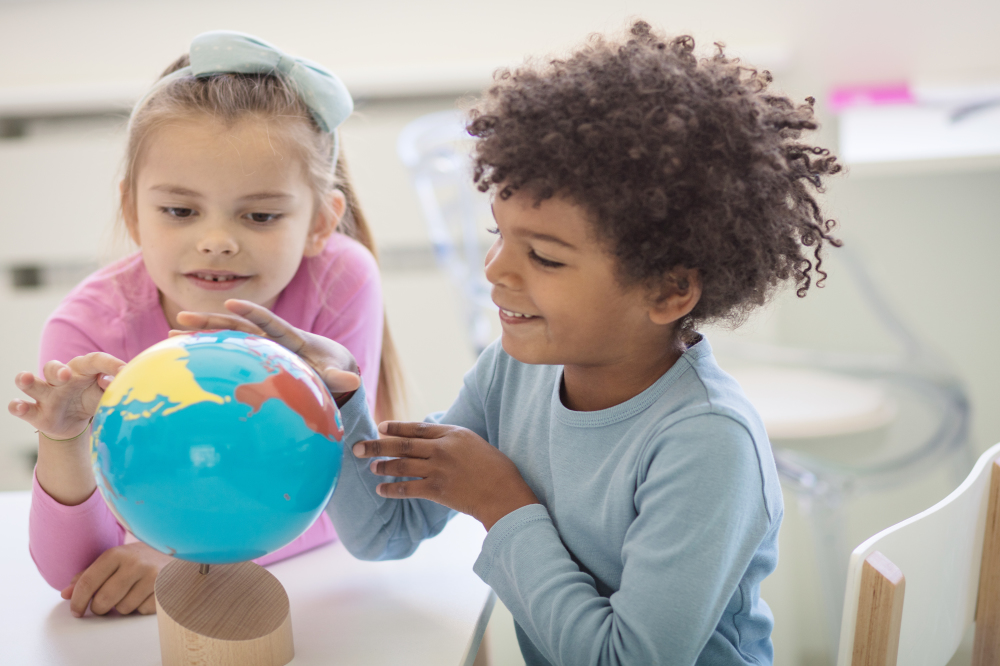Whether it's TV footage or scary statistics about the untold suffering waiting for future generations, a lot has been said and shared about the looming consequences of the climate emergency.

How to speak to kids about the climate emergency
We know that if we're ever going to combat the issue, we need to take it seriously, but with so much conversation around the uncertain future of the planet, experts are warning about another byproduct of the issue – anxiety.

Worrying about the environment to the point where it has a negative effect on your mental health has become so commonplace, it's even birthed a new term – 'climate anxiety'. Psychologists are also warning that it's particularly hitting young people hard.
And although there are new worries on our minds right now, that too can feed into this anxiety. Is single-use plastic back on the rise thanks to the need to protect ourselves from Covid-19?
So, how can you speak to your children about climate change in a way that doesn't overwhelm or upset them? Dr Hayley van Zwanenberg, child and adolescent psychiatrist at Priory's Oxford Wellbeing Centre reveals some helpful tips…
1. Listen to your children's concerns and 'validate' them
However insignificant their problems might seem to you, Zwanenberg says that it's important to give kids space to vent their worries.
"I'd urge parents to really listen to your child's concerns and try not to dismiss them, as dismissing them would just make them feel invalidated and frustrated.

"Perhaps say something like, 'I understand your concerns and it's great you care about the planet and about others'.
"It can help to reassure young people if they see you, as a family, making even small changes, so sit with them and think how you can all play your part in reducing your carbon footprint. This will make them feel heard by you and taken seriously."
She suggests explaining that you can understand why they are worried and it's good that they care.

"If your child is concerned about the environment, with so-called eco-anxiety, that is a positive, because it shows they care about things outside of themselves.
"Worrying about the climate, if not excessive, is reasonable and healthy for a young person. Consider as a family how you can reduce your carbon footprint by increasing recycling, growing things, not using plastic bags when grocery shopping, and not using single-use plastic bottles.
"Show them how you are buying recycled clothes perhaps, and presents from charity shops, and encourage them not to waste water when they brush their teeth."
2. Discuss the current pandemic with them
Scientists have found that the coronavirus pandemic has lead to a huge drop in air pollution. During these uncertain times, Zwanenberg says that a discussion about the surprising eco-benefits of social distancing can help to put a positive spin on things.

"Talk about what top scientists and environmentalists are saying about the potential impact on pollution, and carbon emissions of less travel and travel restrictions.
"How might this be achieved when the pandemic ceases? Having an 'evidence base' will reassure the young person and could help them create something positive out of the anxiety and sadness they may have about Covid-19."
3. Give them hope for the future
Zwanenberg says that climate conversations don't have to be all doom and gloom.
"Explain that all the publicity recently regarding climate change is being heard by the public and governments; this is different from before.
"Discuss how many people are currently changing their way of working now, with far more people working from home, and how this might continue in some instances, which could help climate change.
"Public figures like Sir David Attenborough have helped young people to voice their worries. Also, spend time with your child in the garden, noticing the changing seasons.

"Notice how active and beautiful nature is and what is changing. Being in the garden and outside in the sunshine will also help with mental health.
"Perhaps give them a section of the garden that is 'theirs' to cultivate and grow things in. Children are really passionate about protecting the planet."
Finally, Zwanenberg says that it's helpful to think about how kids can help outside the family situation.
"Could your child do a presentation for school, or write a blog or encourage their friends to do more for the environment?
"Some children have created 'There is no Planet B' posters and put them up in their windows at home.
"Whether it's volunteering, or just putting together a catchy video or vlog, taking action can reduce the feeling of helplessness."

